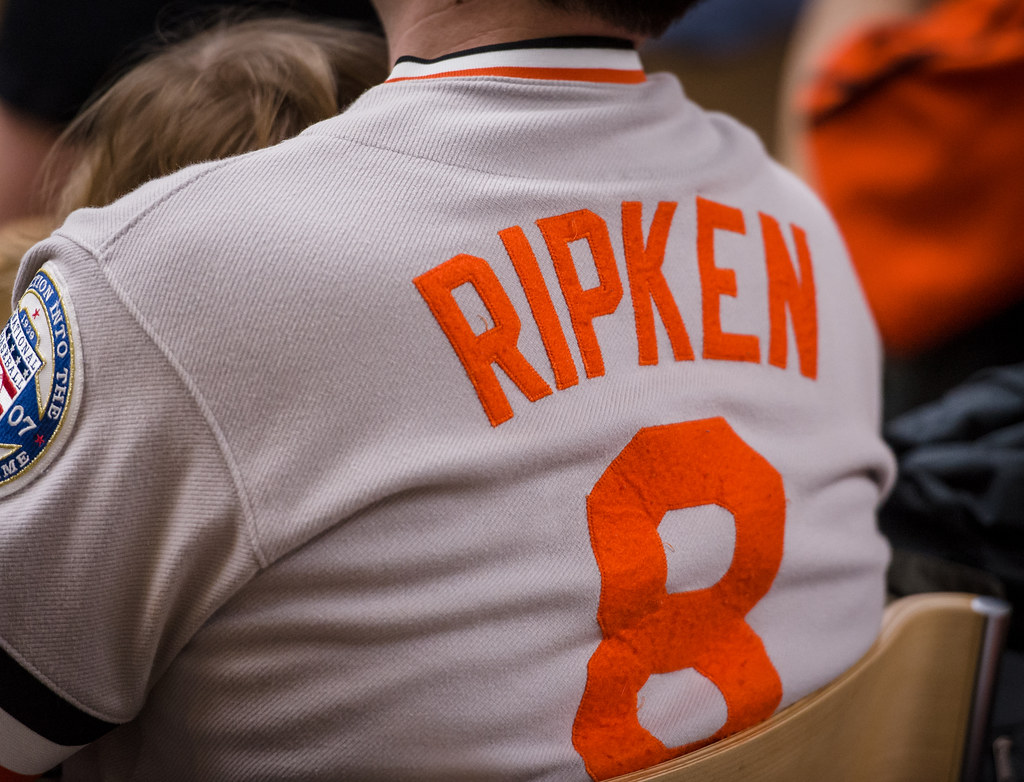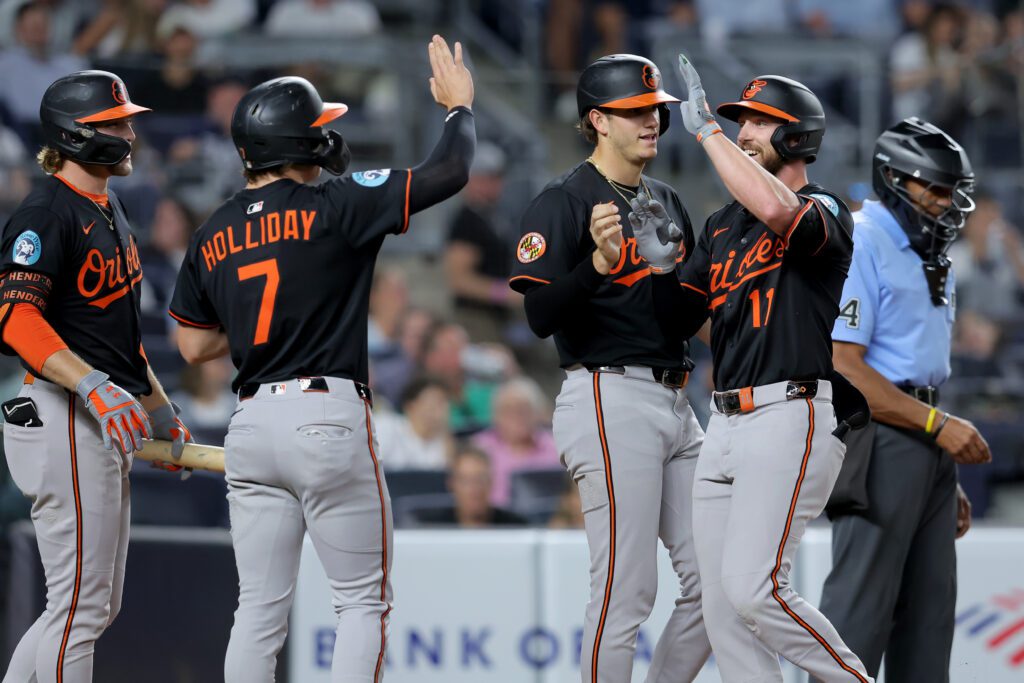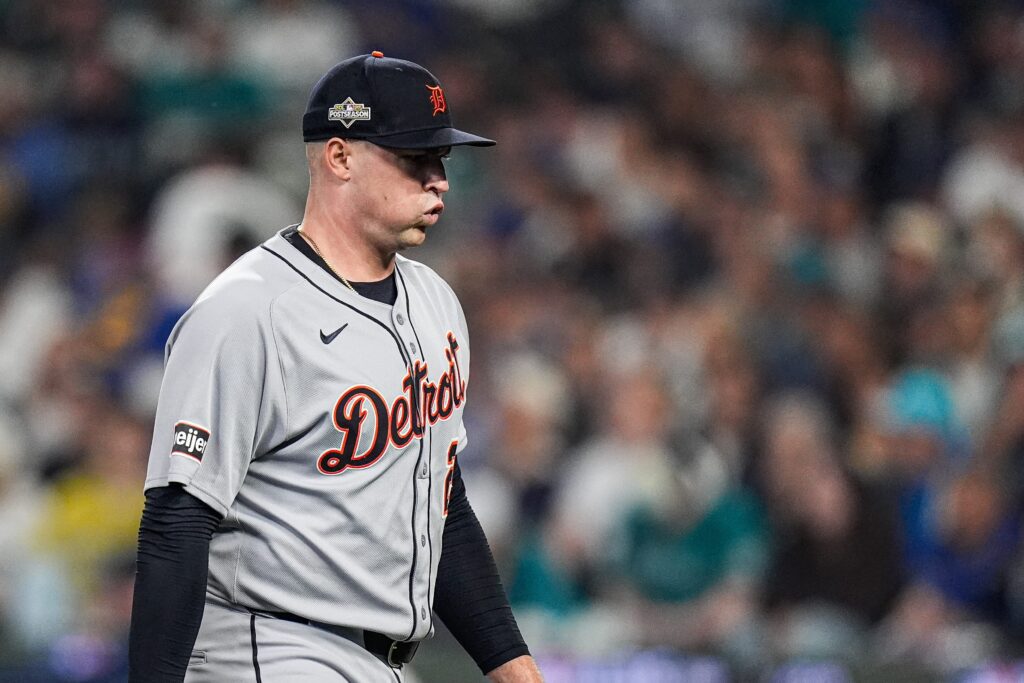This is the third article in a series that looks at the five best players at each position for the Baltimore Orioles. In this installment, second basemen and shortstops.
The top fives a both the second base and shortstop positions for the Baltimore Orioles feature a good mix, both in terms of eras and focus. Among the All-Stars and Hall of Famers are offensive leaders and defensive wizards from the early 1900s through the early 200s.
The Best Second Basemen and Shortstops in Baltimore Orioles History
Second Basemen
Honorable Mention – Marty McManus – He began his career with one game at third base in 1920 and became a solid performer over the next six seasons, even leading the American League with 44 doubles in 1925. McManus hit .298 with the Browns, getting a least 150 hits and driving in at least 80 runs four times apiece and reaching 100 runs twice. In 856 games, he scored 504 runs, had 949 hits and drove in 502 runs.
5. Oscar Melillo – After splitting time with McManus in 1926, he took over as the starter and spent the next 10 years in St. Louis. “Ski” played 1,147 games, totaling 1,124 hits and 470 RBIs. His best season was 1931 when he posted career highs with a .306 average, 88 runs scored, 189 hits and 75 runs batted in.
4. Bobby Grich – An underrated player who is starting to get some Hall of Fame consideration. Grich spent his first seven seasons with Baltimore (1970-76), earning three All-Star selections and four gold gloves. In 786 games, he had 320 hits, 70 home runs and 307 RBIs. He did not play in the Orioles’ 1970 World Series victory, but he did hit two home runs in nine playoff games (both ALCS losses in 1973-74).
3. Brian Roberts – He made two All-Star teams in 13 seasons with the Orioles, but his final four years in Baltimore were marred by injuries. Roberts led the league in doubles twice (50 in 2004 and 56 in his last full season of 2009), and he also topped the A. L. in steals with 50 in his All-Star 2007 season. Overall, he played 1,327 games, amassing 1,452 hits, 92 home runs, 521 runs batted in and a .278 average. He also sits third in franchise history with 278 stolen bases, fourth with 351 doubles and eighth with 810 runs. From 2010-13, however, he played just 192 of a possible 648 games due to a pair of concussions, hip surgery and hamstring surgery.
2. Dave Johnson – Before he was Davey, a manager who led teams to the playoffs six times and won the World Series with the Mets in 1986, he was Dave, a three-time All-Star and three-time gold glove recipient in eight seasons with the Orioles. Ironically, his best statistical season (.282-18-72 in 1971) did not earn him an All-Star selection. In 995 games, he totaled 904 hits, 66 home runs and 391 RBIs. The Orioles went to the World Series four times during Johnson’s tenure, winning twice. He had two home runs and 10 RBIs in 30 playoff games. The year after leaving Baltimore, Johnson shattered his career bests with 43 homers and 99 runs batted in with the Braves in 1973.
1. Roberto Alomar – The well-traveled Alomar played just three seasons with the Orioles but made the All-Star team each year and also earned two gold gloves. In 412 games with Baltimore, he had 282 runs, 496 hits, 50 home runs, 210 runs batted in and a .312 average (which is tied for seventh in team history). Alomar added two homers and RBIs in 19 postseason games, helping the Orioles reach the ALCS in 1996 and ’97. However, his Baltimore tenure was not without incident. He was suspended five games after spitting on umpire John Hirschbeck during a game late in the 1996 season. he was inducted into the Baseball Hall of Fame in 2011.
Shortstops
Honorable Mention – J.J. Hardy – A three-time gold glove winner who also showed flashes of power during his seven seasons with the Orioles (2011-17). Hardy earned his only All-Star and silver slugger honors (along with a gold glove) in 2013, when he had 25 home runs and 76 runs batted in. However, his 2013 season was arguably better with a .269-30-80 stat line. Hardy’s career was cut a bit short when he missed half of 2017 with a fractured wrist and retired after the season. Overall, he played in 889 games, had 854 hits, smacked 107 homers and drove in 385 runs.
5. Miguel Tejada – The 2002 American League MVP with the Athletics earned three All-Star selections and two silver sluggers during a five-year career with the Orioles (2004-07 and 2010). During a dominant three-year stretch from 2004-06, Tejada average 200 hits a season, led the league with 150 RBIs in 2004 and topped the A. L. with 50 doubles the following year. In 716 games, he totaled 876 hits, 109 homer runs, 468 runs batted in, and he hit .305.
4. Vern Stephens – Over a 10-year career with the Browns and Orioles (1941-47 and 53-55), he was a four-time All-Star and an offensive catalyst in St. Louis’ run to the World Series. Stephens topped 80 runs, 160 hits and 20 home runs three times each and 80 RBIs four times. His best season was 1944, when he hit .293 with 20 homers and a league-high 109 runs batted in while finishing third in the MVP voting. Stephens followed that up with five hits in a World Series loss to the Cardinals. In 994 games, he hit .292 with 1,100 hits, 121 home runs and 591 RBIs. After his playing career, Stephens worked for construction companies. He suffered a heart attack and died in 1968 after trying to lift a piece of machinery.
3. Mark Belanger – Any talk of the greatest left side of an infield has to include Belanger, an eight-time gold glove winner, and Brooks Robinson, who earned a record-tying 16 gold gloves. His best season was 1969, when he had career highs with 76 runs, 152 hits, 50 runs batted in and a .287 average, but he earned his only All-Star selection in 1976 after posting a .270 average, 141 hits, 40 RBIs and a career-high 27 stolen bases. In 17 seasons, Belanger had 1,304 hits and 385 RBIs. He ranks third in team history with 1,962 games and is tied for ninth with 166 steals. Although he was a light hitter, Belanger drove in seven runs in 43 postseason games, and he was a member of the 1970 championship team. He was a special assistant in the Major League Baseball Players Association from 1983 until his death from lung cancer in 1998.
2. Bobby Wallace – Started his career by playing eight years in the National League with the Cleveland Spiders and then the Cardinals before signing with the crosstown rival Browns in 1902. Although Wallace never led the league in any statistical categories, he was a consistent producer for the next 11 seasons. His production declined over his final four seasons with the Browns, and he went back to the Cardinals for two more seasons before retiring in 1918. In 15 seasons with the Browns, Wallace totaled 1,569 games (tenth in franchise history) and 65 triples (ninth) to go along with 1,424 hits, 607 runs batted in and 138 stolen bases. After his playing career, Wallace was a scout with the Reds for 33 years until his death in 1960. He was elected to the Hall of Fame by the Veteran’s Committee in 1953.
1. Cal Ripken Jr. – Before his final five years at third base, Ripken was one of the best offensive shortstops in Major League history. Few players had the start to a career he had. Ripken hit 28 home runs and drove in 93 runs to win Rookie of the Year in 1982, then followed that with an MVP season in which he hit .318 with 27 homers and 102 RBIs, and he also led the league with 121 runs, 211 hits and 47 doubles. He ended the season as a starter on Baltimore’s World Series-winning team. Ripken was also American League MVP in 1991, when he hit .323 with 99 runs, 210 hits, 34 home runs and 114 RBIs.
Ripken was a 19-time All-Star, won two All-Star Game MVP awards, earned eight silver sluggers and two gold gloves, and he won the Home Run Derby at the 1991 All-Star Game. He also tops the franchise list in games played (3,001), runs (1,647), hits (3,184), total bases (5,168), doubles (603), home runs (431) and runs batted in (1,695). However, he is best known as baseball’s “Iron Man,” breaking Lou Gehrig‘s “unbreakable” record 2,130 games played streak on September 5, 1995. The streak that began on May 30, 1982, finally ended after 2,632 games when Ripken asked for a day off on September 20, 1998. He was elected to the Baseball Hall of Fame in 2007 with 98.5 percent of the vote.
Upcoming
Baltimore Orioles Catchers and Managers
Baltimore Orioles First and Third Basemen
Baltimore Orioles Outfielders and Designated Hitters – Coming soon
Baltimore Orioles Pitchers – Coming soon
Previous Series
A look back at the Atlanta Braves
Catchers and Managers
First and Third Basemen
Second Basemen and Shortstops
Outfielders
Pitchers
A look back at the Arizona Diamondbacks
Catchers and Managers
First and Third Basemen
Second Basemen and Shortstops
Outfielders
Pitchers



